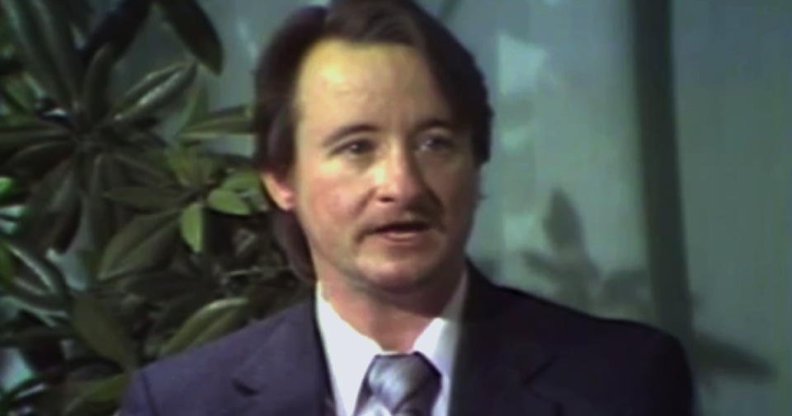The powerful and eye-opening diaries of the first gay trans man diagnosed with AIDS

Lou Sullivan. (Twitter)
The diaries of Lou Sullivan, the first known gay trans man diagnosed with AIDS, are being published 18 years after his death.
Sullivan, who was born in Milwaukee in 1951, started keeping a diary at the age of 10 and continued for the next three decades until his death.
He died as a result of AIDS-related complications in 1991.
His diaries are a “radical testament to trans happiness“, according to the New Yorker, and track his growth from a rebellious Catholic schoolgirl in suburban Wisconsin to noted trans writer and activist based in San Francisco.
They are being published for the first time, on September 24, in a collection called ‘We Both Laughed in Pleasure: The Selected Diaries of Lou Sullivan.
Sullivan was a gay trans man at a time when being trans was still classed as a mental disorder, and being a gay trans man wasn’t something that the medical profession deemed to exist – trans men could only be heterosexual, according to doctors at the time.
Sullivan kept his diary in the hopes that one day he would publish it, a record of “a phenomenon such as myself”.
“A big fear of mine is that I will die before the gender professionals acknowledge that someone like me exists, and then I really won’t exist to prove them wrong,” Sullivan wrote.
He also published a newsletter for the trans community called F.T.M, three editions of ‘Information for the Female to Male Cross Dresser and Transsexual’, and a year before his death he published a biography of Jack Bee Garland, a gay trans man who lived in San Francisco in the 1930s.
“Though it is Garland’s story, it tells about me,” Sullivan writes in his diary. “It explains my reality for future generations of female-to-gay males.”
Sullivan’s struggles to be recognised by the medical professionals – in order to access healthcare and support – are documented in his diaries, too.
One doctor asked Sullivan to “classify” his routines by whether they were “stereotypically masculine” or “stereotypically feminine”.
Sullivan wrote of this: “How the hell am I supposed to answer that?? Oh, I put cream + sugar in my coffee, that’s feminine; I like to watch boxing matches on TV, that’s masculine; I put bath oil in the tub, that’s feminine; and I use Brut deodorant, that’s masculine. [. . .]
“I left there rather discouraged. I first went to a bar (masculine!) and then home to cry (feminine!).”
In the late 1980s, while he was dying of AIDS-related complications, Sullivan wrote an entry about being in a gay bar in San Francisco which sums up the ‘happiness’ the New Yorker alluded to.
“I’ve come all this way, gone thru this whole change, crossdressing 14 years, hormone shots for 8 yrs,” he wrote.
“Finally got all the surgery, or all I’m ever going to get. And now what? Now I sit here the same way I sat before hormones, before surgery. Now what? My future compressed into a shortened time slot. Most dead in 2 yrs. Some live for 5.
“Yet it’s been worth all these years just to be in this bar, here, now, with AIDS, to be a man among men.”

